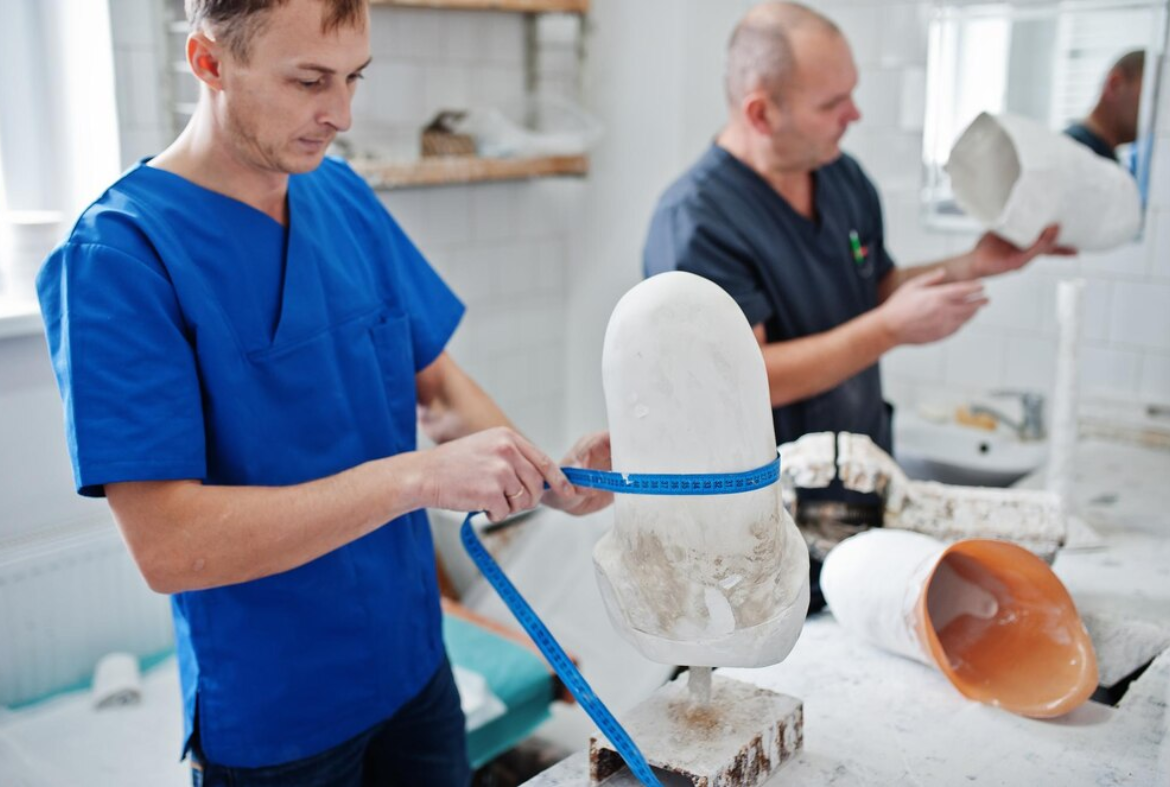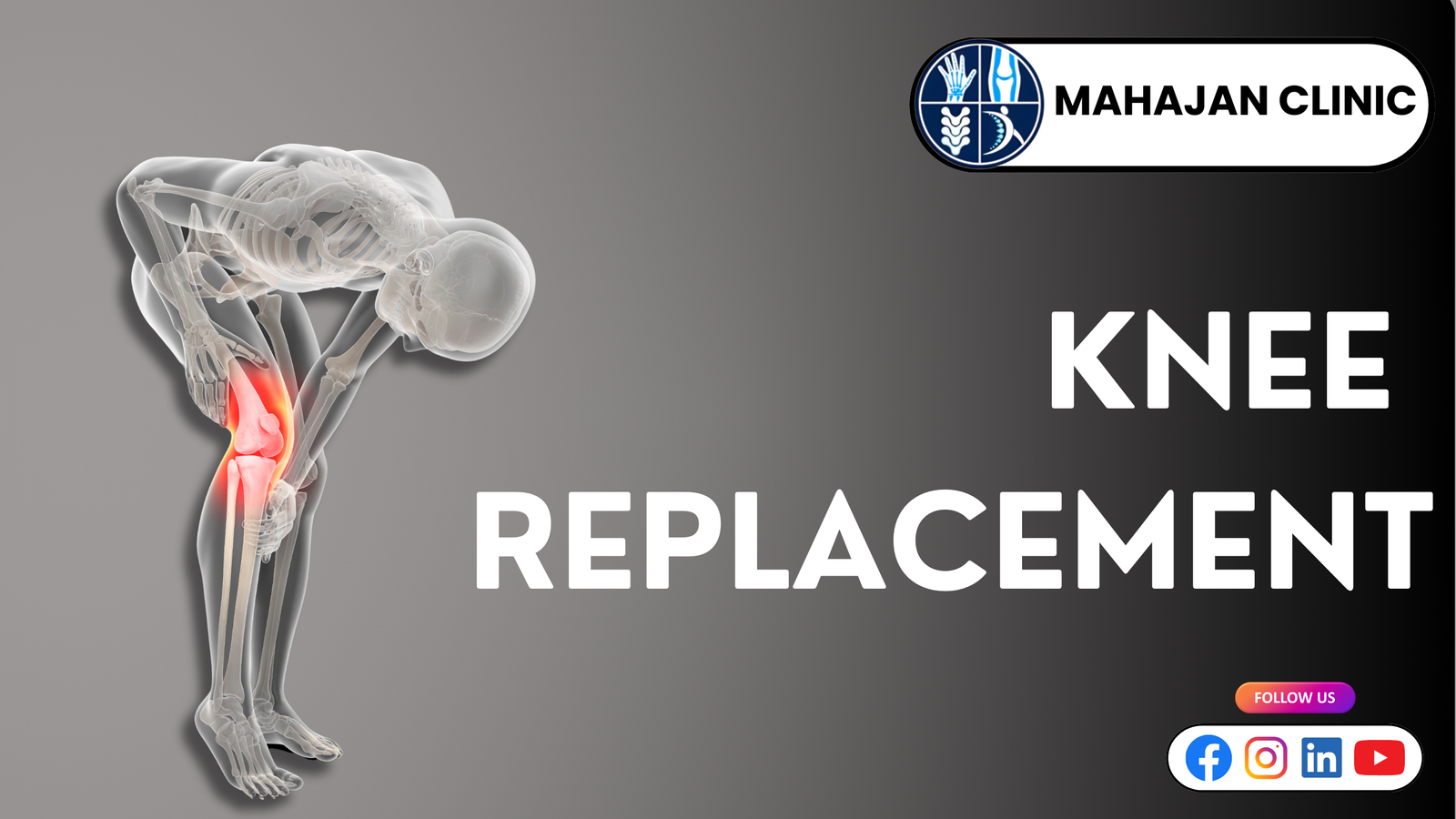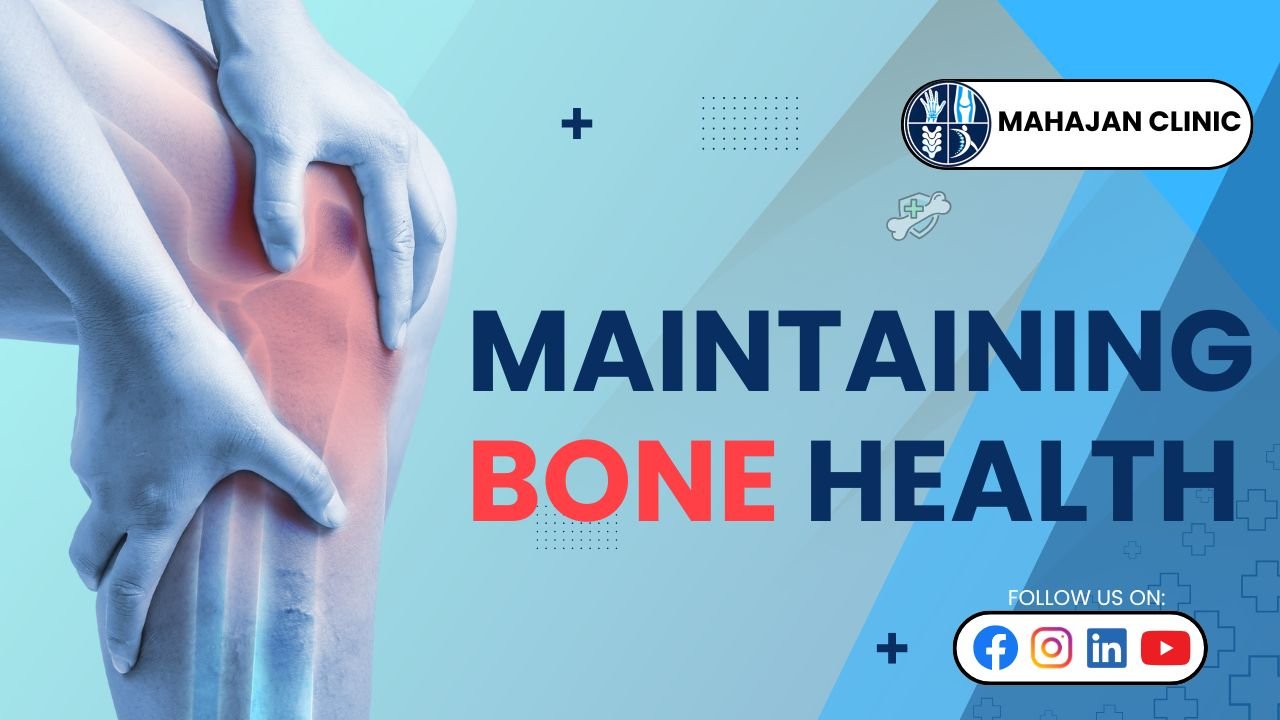Blog Details

Preventing Joint Pain and Wear: Tips from Orthopedic Surgeons
People in their 20s and 30s are now complaining of joint pain in their knees, hips, shoulders, and other joints, so it's not just an issue for the elderly. Prevention is essential, whether you're looking to shield your joints from future harm or are already seeing early wear.
According to Dr. Rakesh Mahajan at Mahajan Clinic, an orthopedic specialist, many joint problems can be prevented with a few thoughtful adjustments to daily activities and posture. Making regular, healthy decisions is more important for preventing joint pain than making drastic changes.
Let’s explore some medically backed tips for joint pain prevention and long-term joint health.
Stay Physically Active, but Smartly
Your muscles and joints stay strong when you move. High-impact exercises or inappropriate methods, however, may cause more harm than good.
Walking, cycling, and swimming are examples of low-impact activities that help you stay mobile without overtaxing your joints. On most days of the week, try to get in at least 30 minutes of exercise.
Additionally, don't neglect your cool-downs or warm-ups. Maintaining flexibility and protecting your ligaments can be achieved by gently stretching both before and after exercise.
Advice: Before beginning a new fitness regimen, speak with an orthopedic specialist if you're new to exercising or already have joint issues.
Maintain a Healthy Weight
One of the most vital tips for joint pain Preventive measures include controlling your weight. Every additional pound strains your joints, especially your back, hips, and knees.
Even a 10-pound weight loss can result in a 30–40% reduction in knee joint stress, according to data from numerous orthopedic studies. After a while, that is a huge relief!
Consider:
- Reducing processed sugars and saturated fats that may exacerbate inflammation.
- Maintaining a healthy diet full of fruits, vegetables, lean meats, and healthy fats.
- Drinking enough water to maintain lubricated joints.
Focus on Posture and Ergonomics
Your joints are directly impacted by how you stand, sit, and move throughout the day.
Over time, misalignment and joint wear can result from slouching, hunching over a desk, or sleeping on a subpar mattress.
Orthopedic surgeons stress the following posture-friendly behaviors:
- Sit with your back supported and your feet flat on the ground.
- To prevent neck strain, keep screens at eye level.
- When working or driving for extended periods of time, use lumbar support.
- If you're seated at a desk, raise your chair so that your arms can comfortably bend at a 90-degree angle.
Quick Fix: To reset posture, use standing desks or take brief stretching breaks every 30 to 60 minutes.
Avoid Repetitive Stress
Overuse injuries can result from repetitive motions without adequate breaks or support, such as typing, carrying heavy bags on one shoulder, or frequent squatting.
Tips for joint pain due to overuse include:
- Alternating hands or limbs when performing daily tasks.
- Using braces or ergonomic tools when needed.
- Avoiding multitasking when lifting, bending, or twisting.
Prevention for those in physically demanding occupations or sports begins with appropriate technique and protective equipment. Early discomfort is a sign that something needs to change, so don't ignore it.
Strengthen Supporting Muscles
Muscle weakness or imbalances are frequently the cause of joint pain. Strong muscles relieve joint pressure and serve as shock absorbers.
At least twice a week, incorporate strength-training activities into your routine that focus on:
- Core muscles to support your spine.
- Quadriceps and hamstrings for knee stability.
- Shoulder and back muscles to ease upper body strain.
Resistance training, yoga, and pilates are excellent ways to increase muscle mass without sacrificing flexibility.
Eat Joint-Friendly Foods
Long-term joint health is supported by anti-inflammatory foods and nutrients. Among the greatest choices are:
- Omega-3 fatty acids (found in salmon, flaxseeds, walnuts)
- Calcium and vitamin D (dairy, leafy greens, fortified cereals)
- Turmeric and ginger (natural anti-inflammatory properties)
- Berries and citrus fruits (rich in antioxidants)
Reducing inflammation can also be achieved by avoiding refined carbohydrates, sugary drinks, and excessive amounts of red meat.
In order to monitor bone density and joint health, particularly for individuals over 40, Dr. Rakesh Mahajan at Mahajan Clinic suggests that patients combine dietary modifications with routine examinations.
Don’t Ignore Minor Joint Pain
Don't ignore minor pain you feel during daily tasks or after physical activity. Chronic joint problems can be avoided with early intervention.
Orthopedic surgeons advise:
- Resting the afflicted joint.
- Using a cold compress to reduce swelling.
- Temporarily wearing compression braces.
- If at all possible, raising the joint.
See a specialist if the pain persists for more than a few days. Early symptoms of tendinitis, bursitis, or arthritis may be present in what appears to be mild discomfort.
Use Proper Footwear
The base of your posture is your feet. Your knees, hips, and spine may all experience alignment issues if you wear unsupportive shoes, especially for extended periods of time.
Key footwear tips:
- Choose shoes with cushioning and arch support.
- Replace worn-out shoes on a regular basis.
- For extended walks, stay away from flat-soled shoes and high heels.
Custom insoles or orthopedic inserts can significantly improve mobility and reduce pain.
Sleep Smart
Your body heals itself while you sleep. On the other hand, bad sleeping posture can exacerbate pre-existing pain or cause joint stiffness.
To encourage the healing of joints:
- Use a mattress that is firm and supportive while you sleep.
- If you sleep on your side, place pillows between your knees to preserve joint alignment.
- If sleeping on your stomach strains your neck or back, avoid doing so.
It's time to review your sleeping arrangement if you frequently wake up feeling sore.
Get Regular Check-ups
While prevention is effective, early problem detection is just as crucial. Frequent orthopedic examinations can help avoid long-term harm, particularly for people who work in physically demanding jobs or have a family history of joint problems.
Minor misalignments or inflammation that you wouldn't notice on your own may be revealed by X-rays, MRIs, or physical mobility tests.
You can live an active, pain-free life for many years with a personalized plan from a reputable orthopaedic specialist.
Final Thoughts
Maintaining good joint health is essential, not optional. Your joints take the brunt of your daily movements, whether you're a homemaker, desk worker, or athlete. By adhering to these tips for joint pain, you can develop routines that protect your health and improve your life. Dr. Rakesh Mahajan at Mahajan Clinic highlights that the true hero of joint care is consistency. Although there isn't a quick fix, regular care and attention can have a lasting impact. Your future self will appreciate the little steps you take today.










